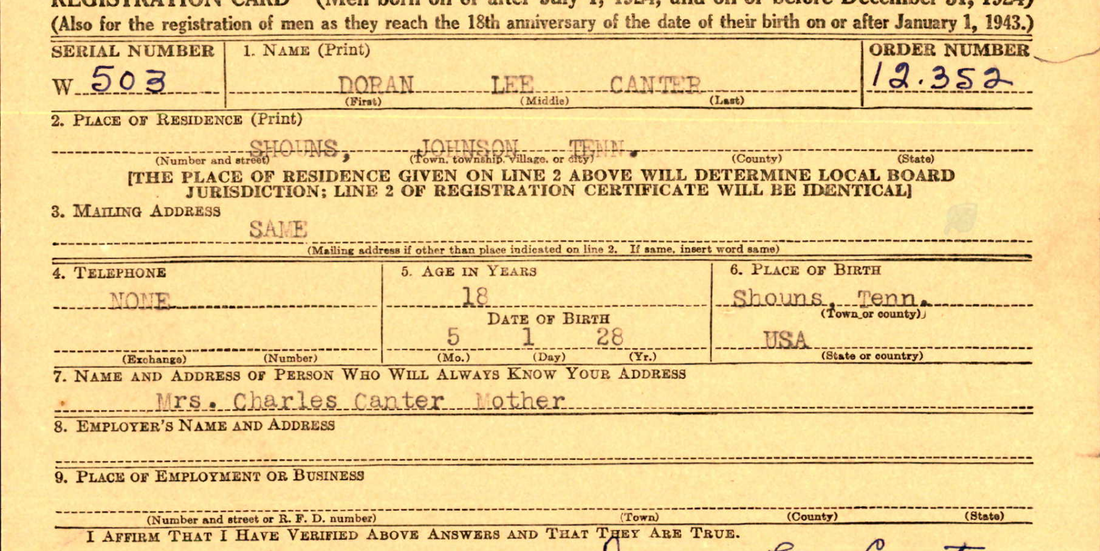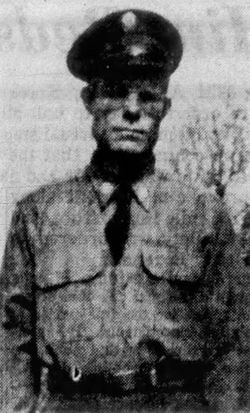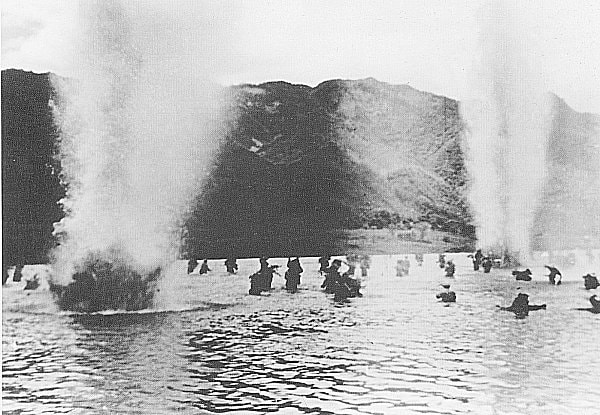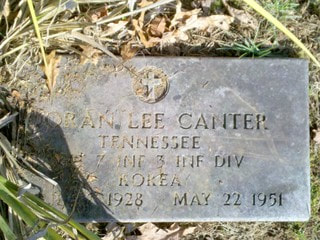Doran Lee Canter
Doran Lee Canter
US Army
Pvt
F Company, 2nd Battalion, 7th Infantry, 3rd Infantry Division
Born April 28, 1928, to Charles C and Sophia Inez Canter, Shouns, TN
Died May 22, 1951
Pvt. Canter was assigned to the 7th Infantry Regiment which was based at Fort Devens, MA. The Regiment deployed from San Francisco on August 20, 1950 and landed in Japan joining up with more of the 3rd Infantry Division . In November, 1950 they embarked again and landed in Wonsan, Korea.
By April 1951 the unit was based north of Seoul in preparation for the spring offensive. The Battle of Soyang River, also called the "May Massacre" began May 16, 1951 and initially it was a North Korea win, but a few days later, the Chinese (PVA) and North Koreans (KPA) advance lost ground - partially due to the reinforcement of UN troops, their own supply difficulties, and heavy losses due to the UN air and artillery strikes. By May 22, 1951, the PVA and KPA had withdrawn.
However, Pvt Canter was killed in action during this offense on May 22, 1951
Canter received the Purple Heat, Combat Infantrymans Badge, Korean Service Medal, United Nations Service Medal, National Defense Service Medal, Korean Presidential Unit Citation and Republic of Korea War Service Medal and is buried in the Shouns United Methodist Church Cemetery, Mountain City, TN
US Army
Pvt
F Company, 2nd Battalion, 7th Infantry, 3rd Infantry Division
Born April 28, 1928, to Charles C and Sophia Inez Canter, Shouns, TN
Died May 22, 1951
Pvt. Canter was assigned to the 7th Infantry Regiment which was based at Fort Devens, MA. The Regiment deployed from San Francisco on August 20, 1950 and landed in Japan joining up with more of the 3rd Infantry Division . In November, 1950 they embarked again and landed in Wonsan, Korea.
By April 1951 the unit was based north of Seoul in preparation for the spring offensive. The Battle of Soyang River, also called the "May Massacre" began May 16, 1951 and initially it was a North Korea win, but a few days later, the Chinese (PVA) and North Koreans (KPA) advance lost ground - partially due to the reinforcement of UN troops, their own supply difficulties, and heavy losses due to the UN air and artillery strikes. By May 22, 1951, the PVA and KPA had withdrawn.
However, Pvt Canter was killed in action during this offense on May 22, 1951
Canter received the Purple Heat, Combat Infantrymans Badge, Korean Service Medal, United Nations Service Medal, National Defense Service Medal, Korean Presidential Unit Citation and Republic of Korea War Service Medal and is buried in the Shouns United Methodist Church Cemetery, Mountain City, TN



